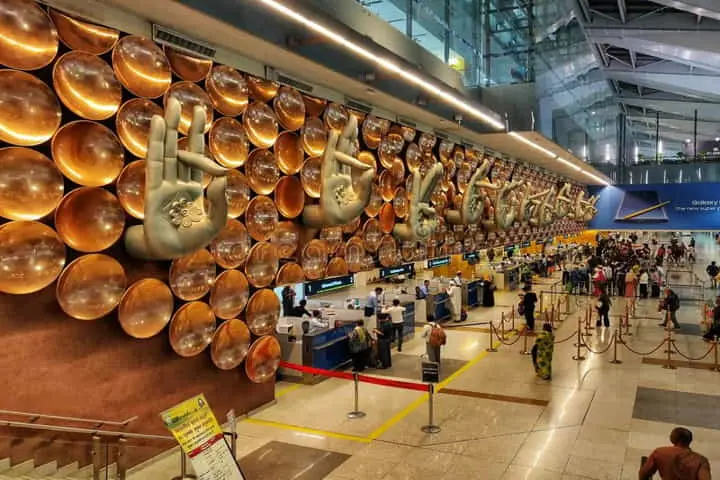Setting an example for others to follow, the Delhi Airport — the country’s busiest – has become totally dependent on green energy as it is using hydro and solar power for its needs from this month onwards. This move is aimed towards becoming a Net Zero Carbon Emission Airport in 2030.
Earlier the airport’s six per cent electricity requirement was met from the onsite solar power plants – located on the airside (7.84 MW plant) and on the roofs of the Cargo terminals (5.3 MW plant) of the Indira Gandhi International Airport. From this month onwards, for meeting the remaining 94 per cent of its needs, the Delhi International Airport Limited, which manages and operates the airport has inked a long-term power purchase agreement with a Himachal Pradesh-based hydropower producing company for the supply of hydroelectricity till 2036.
This initiative will help the airport to reduce indirect energy emissions to a tune of 200,000 tonnes of CO2 every year.
Commenting on DIAL’s measures to become green, its CEO Videh Kumar Jaipuriar said: “DIAL has been working relentlessly towards environmental sustainability and has set its target to make Delhi Airport a Net Zero Carbon Emission airport by 2030, way ahead of the global target of 2050.”
Other measures adopted by DIAL include renewable energy development and usage, energy efficiency, green building and transportation, planting of trees, and management of greenhouse gases as per Airport Council International’s Airport Carbon Accreditation.
By introducing Taxibots, the airport has helped airlines to reduce the consumption of fuel during taxiing. Further, DIAL is going in for electric vehicles and 62EVs are expected to join the fleet in next four months.
Through its water and waste management measures DIAL now has a 16.6 MLD zero liquid discharge sewage treatment plant, rainwater harvesting structures, nine million litre storage tanks, and water-efficient fixtures. It has also adopted the initiative to become a “single-use plastic-free airport”.




















